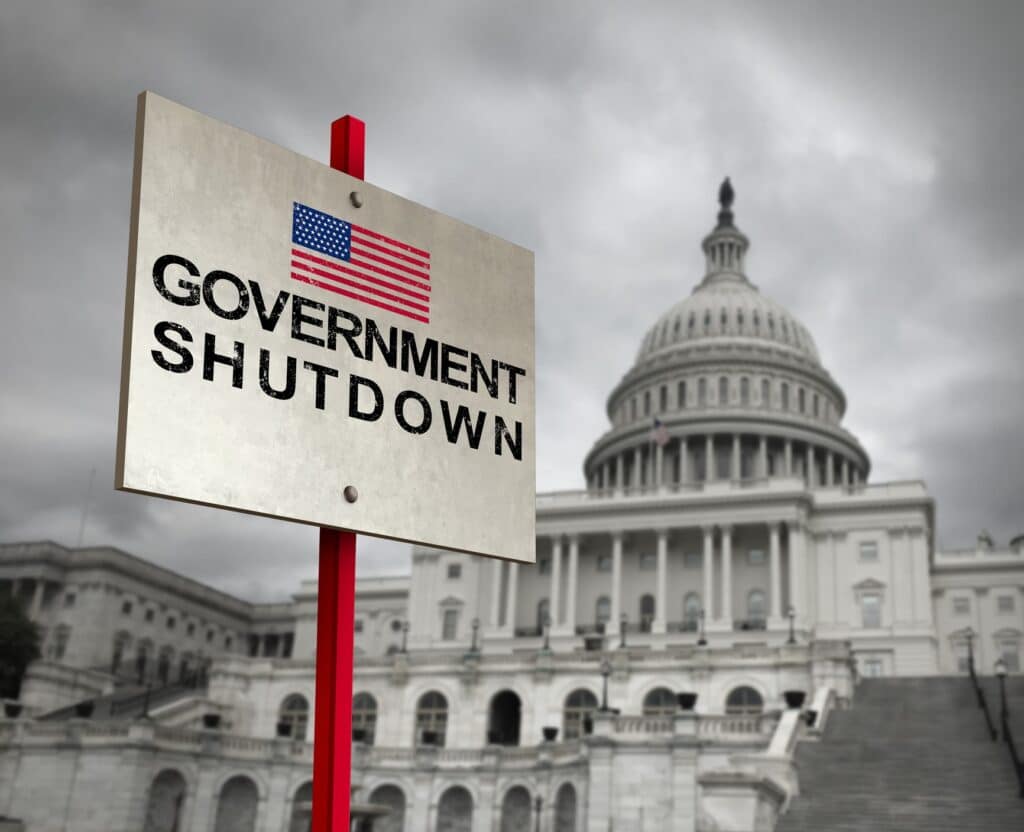What Happens to Immigration Processing During a Government Shutdown?
By, Lauren Twist, Counsel

When the federal government faces a shutdown, many understandably worry about how it may affect immigration case processing. Below is an overview of how key agencies— U.S. Citizenship and Immigration Services (USCIS), the U.S. Department of Labor (DOL), the U.S. Department of State (DOS), and the Executive Office for Immigration Review (EOIR)—typically operate during a shutdown.
USCIS: Still Open for Business
Most USCIS services continue during a shutdown because the agency is primarily funded by application filing fees, not by congressional appropriations. This means:
- Petitions, applications, and requests filed with USCIS will still be accepted and processed.
- Appointments for biometrics and interviews should continue as scheduled.
- Premium processing remains available unless specifically suspended by USCIS.
However, certain programs that rely on annual congressional funding may be paused. For example, E-Verify is typically unavailable during a shutdown. Employers will not be able to initiate or complete new cases in the E-Verify system until funding is restored.
Even during a government shutdown when E-Verify is unavailable, employers are still required to complete Form I-9 for all new hires within the standard timelines. While E-Verify submissions may be delayed, the underlying obligation to verify employment eligibility through the I-9 process does not change so alternative methods for I-9 verification may be required, such as completing paper-based I-9 and physically inspecting documents.
DOL: Processing Pauses
The Department of Labor, on the other hand, is directly affected by shutdowns. This matters for cases that require labor condition applications (LCAs) or prevailing wage determinations, such as:
- H-1B and H-1B1 petitions
- E-3 petitions
- PERM labor certification cases
During a shutdown, DOL systems like the FLAG portal are taken offline. No new LCAs, prevailing wage requests or PERM applications can be filed or processed. All pending applications are placed on hold. This creates potential delays in cases that depend on DOL certification before a petition can move forward with USCIS.
Department of State (DOS): Limited Impact but Possible Delays
The Department of State typically continues to process visas and passports during a shutdown, since these services are largely funded through application fees. However:
- Consular operations may slow down if a shutdown is prolonged, especially at overseas posts with limited staff.
- Certain programs that rely on appropriated funds (such as some cultural exchange programs) may be affected.
- If consular staff are reduced, applicants could see longer wait times for visa appointments and processing.
Immigration Courts (EOIR): Largely Suspended
Immigration courts (EOIR) are directly impacted by shutdowns, since they rely on congressional funding.
- Detained cases (involving individuals held in immigration custody) will continue to be heard, as these are considered essential.
- Non-detained cases are generally suspended and will be rescheduled once funding resumes. This can add significant delays to already backlogged dockets.
What This Means for You
- USCIS: Processing mostly continues.
- DOL: Applications stop until funding is restored.
- DOS: Visa and passport services continue, but may slow down.
- EOIR: Only detained hearings move forward; other cases are postponed.
- E-Verify: Unavailable during the shutdown; employers must complete cases once the system is back online.
How We Can Help
Our firm closely monitors government funding developments and agency announcements. If a shutdown occurs, we will provide updated guidance on how to minimize case delays, adjust filing strategies, and maintain compliance.
If you have a pending case or upcoming filing that may be affected, please contact our team so we can plan accordingly.
*Disclaimer: This information is presented for the purposes of general education and does not constitute legal advice. For advice about a specific case, please consult legal counsel.immigration counsel to ensure compliance and explore available options.

